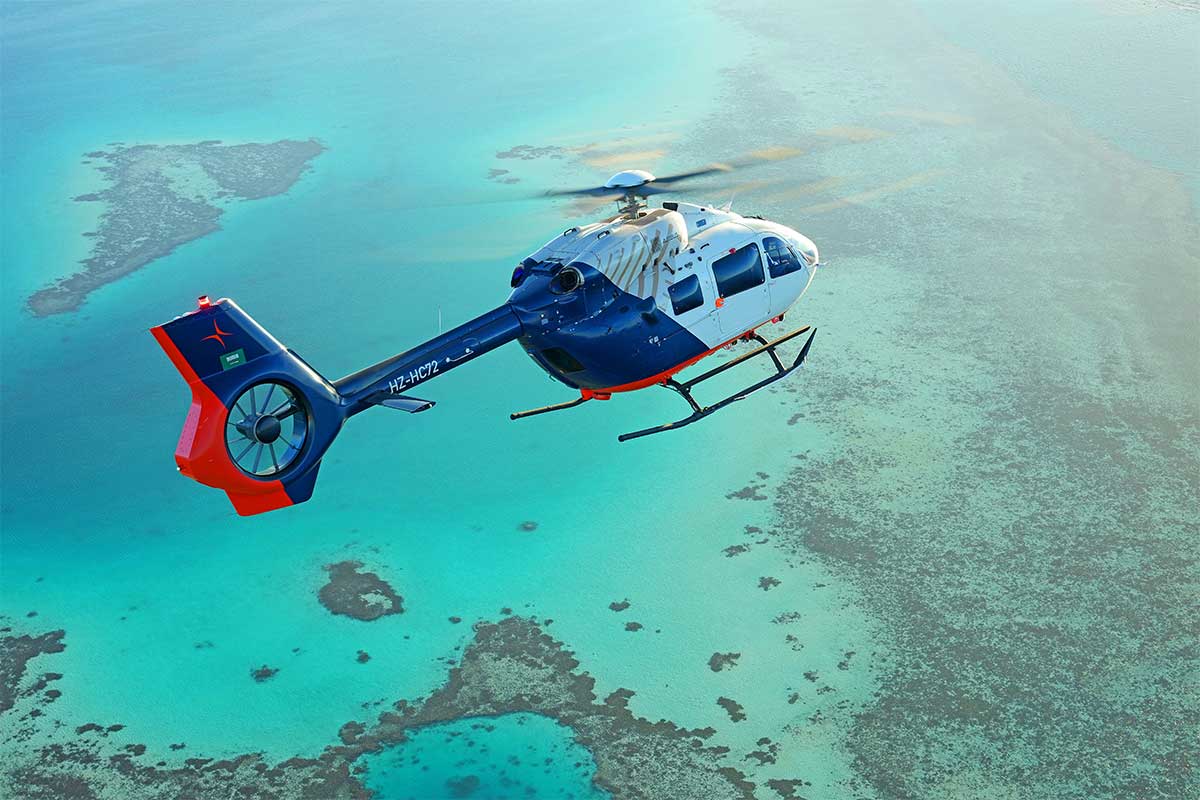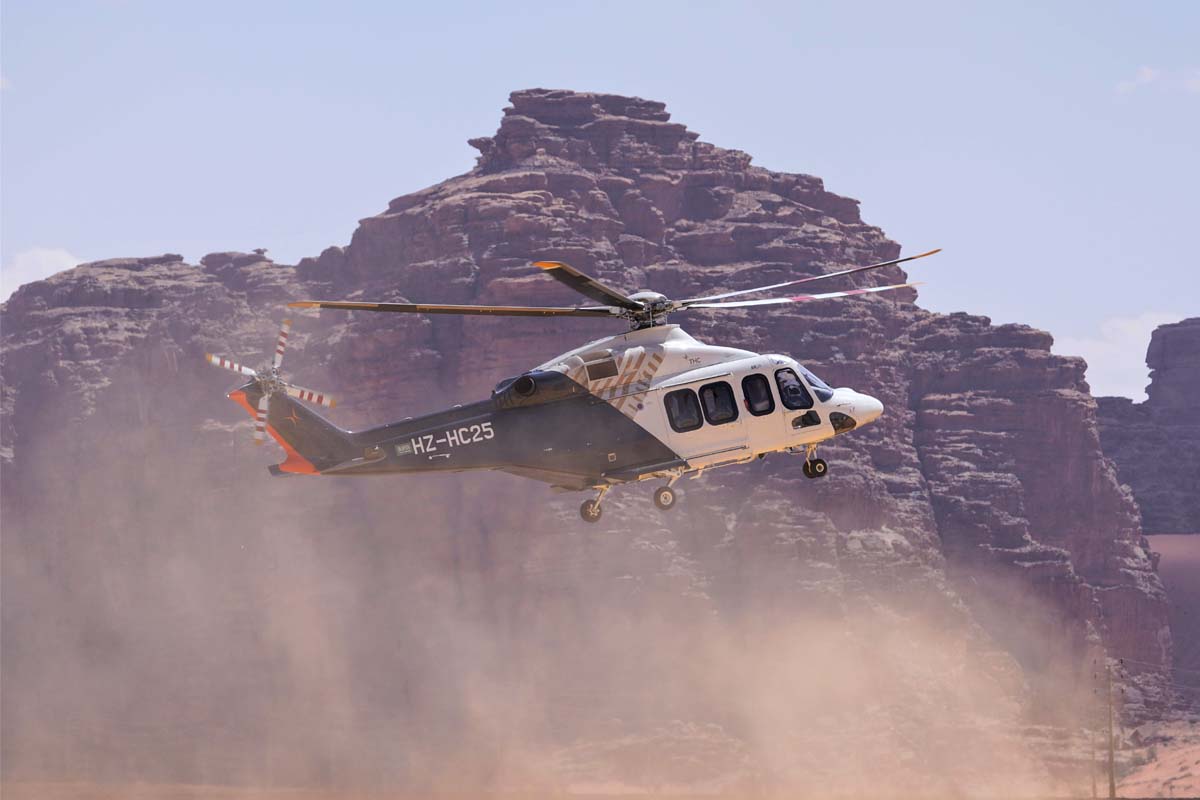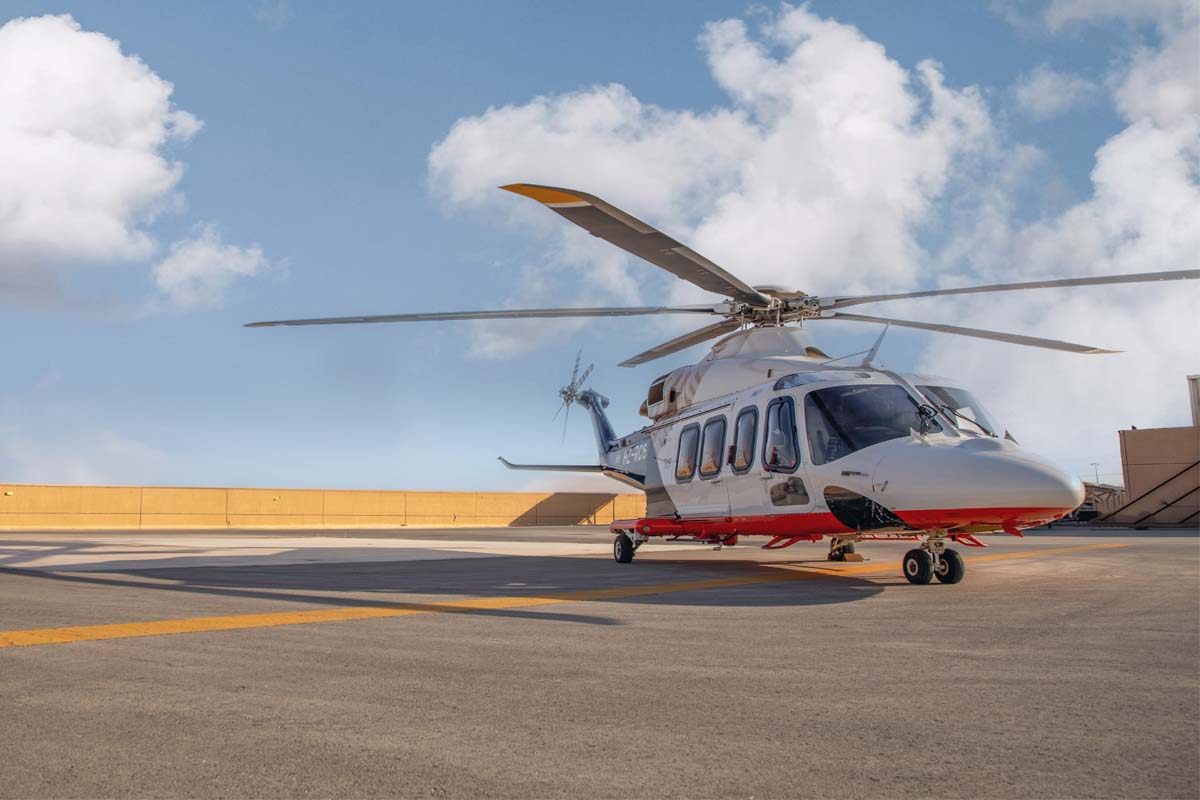Innovation, adaptability, and sustainability — these things are pivotal for sustained growth in a sector as dynamic as aviation. Exemplifying all three is The Helicopter Company (THC), a premier commercial helicopter operator in Saudi Arabia.
In this exclusive interview, Captain Arnaud Martinez, CEO of THC, discusses the company’s continuous evolution as it focuses more on hospitality and tourism. He also emphasizes THC’s robust commitment to advancing air mobility and sustainability, forging strategic partnerships to remain ahead of the curve. Martinez also discusses how the company is managing its rapid development while prioritizing safety.
Like in many other sectors, innovation and adaptability are key to sustained growth in the aviation sector. Can you provide specific examples of how THC’s services have evolved to meet the changing needs of your clients or partners, especially now that there is a strong focus on hospitality and tourism in the region?
Innovation is the cornerstone of THC’s operations, and we are continuously breaking new ground in our commitment to setting new standards in the aviation industry. THC’s innovative approach extends to our fleet, services, and operational strategies, ensuring that we remain at the cutting edge of aviation technology and practices.
THC’s initial goal was to provide immediate, tailor-made solutions for giga projects such as Red Sea Global and NEOM. As these projects progress, THC is evolving its service offerings to meet their changing needs. We are expanding our services to hospitality and tourism, sectors expected to become key drivers of the Kingdom’s non oil economy, whilst continuing our important work in construction-related aerial work and medical support.
THC has also partnered with Saudia Private, a leading local Fixed-Base Operator (FBO), since November 2023, expanding THC’s access to ground handling services across Saudi airports. By leveraging Saudia Private’s extensive network, THC now offers a wider range of services, including airport clearances, marshaling, immigration assistance, fueling, and access to private VIP terminals. This allows THC to cater to a more diverse clientele and provide increasingly comprehensive packages for Saudi travelers whilst enhancing the overall travel experience in the Kingdom from the get-go.

Advanced air mobility (AAM) and urban air mobility (UAM) are two major trends in aviation. How are you positioning THC to leverage these trends, and what initiatives or partnerships have you undertaken in these areas?
THC wholeheartedly embraces and actively progresses AAM and UAM in the Kingdom, as exemplified through our recent partnerships and initiatives. In August 2023, THC signed an agreement with Altanfeethi to offer advanced transportation services from operator terminals to customers to meet the growing demand for streamlined and convenient urban transport services in the Kingdom.
More recently, in June 2024, THC signed a memorandum of understanding (MoU) with Riyadh Municipality under which THC will establish three helicopter landing sites in Diriyah, at Edge of the World, and in Ushaiqer. The MoU aims to develop a future vision for air mobility in Riyadh by fostering private-sector cooperation and enhancing visitors’ access to tourist destinations.
In February 2024, we also signed an MoU with Bristow Arabia Aircraft & Maintenance Services to explore Advanced Air Mobility (AAM) opportunities and other initiatives in the Kingdom, positioning THC as a leader in cutting-edge aviation solutions.

Sustainability is also a key issue in the industry. What strategies has the company implemented to reduce its environmental impact and promote sustainability in aviation?
THC prioritizes sustainability as a core business objective and we constantly consider our environmental impact in the work that we do. THC is working to reduce energy consumption, recycle waste, and minimize emissions from our operations.
Our sustainability strategy includes the adoption of Sustainable Aviation Fuel (SAF) standards, which emphasize the use of waste-derived or renewable sources to significantly reduce aviation’s carbon footprint. We also continuously invest in lower-noise aircraft, as evident in our acquisition of 10 H160 aircraft with advanced technology, significantly reducing noise levels and showcasing our commitment to environmentally responsible aviation.

Read: Mohammed Al Naimi, CEO of ACT Group, on Saudi Arabia’s evolving industrial landscape
THC is currently growing at an unprecedented scale, onboarding an average of one aircraft every month. How are you managing this rapid development, and what major expansion plans do you have in the pipeline?
THC is growing at an unprecedented scale with plans to expand its fleet to more than 100 aircraft by 2026. During HAI Heli-Expo 2024 in California, THC announced a framework agreement with Airbus that will include up to 120 Airbus helicopters of various types set to be delivered over the next five to seven years. We also announced a similar framework agreement with Leonardo over the same time period, covering 100-plus aircraft. The new helicopters will support the delivery of THC’s range of services in areas including aerial work, tourism, HEMS, and corporate transport, allowing us to meet growing demand in the Kingdom.
THC is determined to prove that everything is possible in aviation with the right partner. We are happy to share our success and lessons learned from our experience to help shape the industry regionally and internationally.
With all these developments and expansion plans, how does THC ensure that safety remains a core priority in its operations?
THC’s commitment to safety and excellence underpins all our operations. Our rigorous adherence to safety protocols and regulations ensures that we provide reliable and secure services to our clients. THC’s safety record speaks for itself — we have flown more than 22,500 flight hours with zero accidents. THC will never compromise when it comes to its world-class operations and the safety of our customers and employees.
For more interviews, click here.




